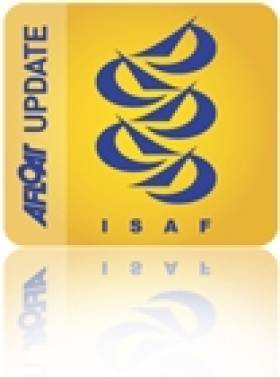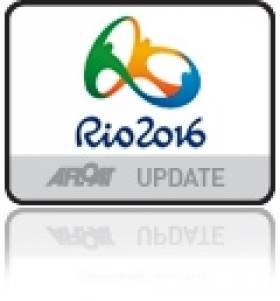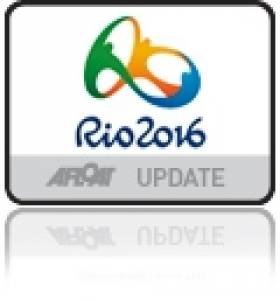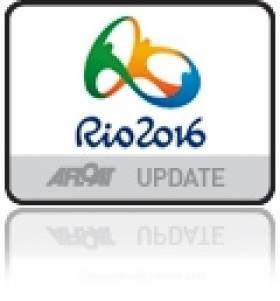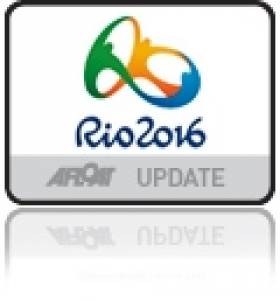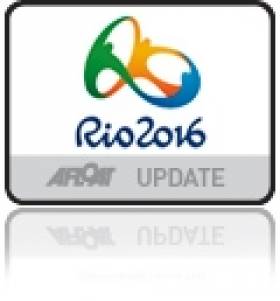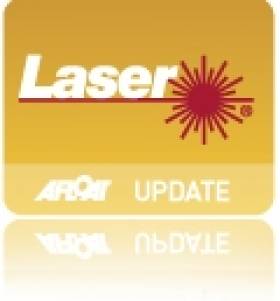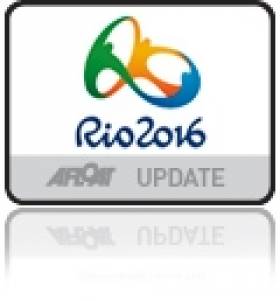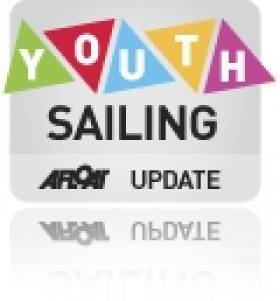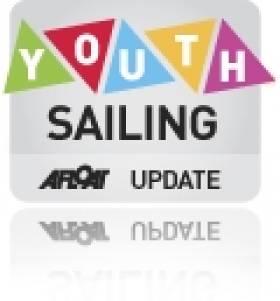Displaying items by tag: ISAF
#isaf – David Kellett (AUS) is to be awarded the ISAF Beppe Croce Trophy which honours an individual for their outstanding voluntary contribution to the sport of sailing.
The ISAF Beppe Croce Trophy, first presented in 1988 in memory of Beppe Croce, the ISAF President from 1969 to 1986, will be presented to Kellett at the 2014 ISAF Annual Conference in Palma de Mallorca, Spain.
Born on 14 December 1948, Kellett has been a passionate sailor throughout his life. He started out in small boats and Olympic classes before making the move to ocean racing and the America's Cup.
Kellett's first involvement in ISAF came in 1992 when he became the ISAF Member of Council for Group L. Kellett represented the region and his involvement and impact within ISAF was quickly felt. From 1994-1998 he was a Member of the Events Committee and from 1997-1998, a Member of the Oceanic Committee.
In 1998 Kellett was elected as an ISAF Vice President and held the position through to 2008. He then served as Treasurer from 2008-2012.
Throughout his time within ISAF Kellett filled many roles around the Olympic Sailing Competition. For Sydney 2000 he was a Member of the 2000 Olympic Working Party, a member of the 2000 Olympic Advisory Board and President's liaison at the Sydney 2000 Olympic Games itself.
He was part of Athens 2004, Beijing 2008 and London 2012 Olympic Management teams and served as ISAF Technical Delegate for the Beijing 2008 and London 2012 Olympic Sailing Competitions.
Kellett is an experienced offshore sailor and has participated in the Rolex Sydney to Hobart Yacht Race 40 times. He skippered Sovereign to line and handicap honours in the 1987 edition and for the past 15 years has been an integral part of the safety network, controlling the race at sea. Kellett was also involved in three America's Cup challenges for Australia.
Kellett the first recipient from outside of Europe or the America's will be presented with the ISAF Beppe Croce Trophy at the meeting of ISAF Council on 7 November 2014.
Sailing World Cup Qualification for 2015 Published By ISAF
#isafswc – The qualification system for the 2015 ISAF Sailing World Cup (SWC) has been published. It will consist of five rounds for all ten Olympic events and where possible, Formula Kite Racing. Download the qualification system as a PDF below.
With reduced quotas, a qualification process based around the ISAF World Sailing Rankings and ISAF Sailing World Cup Qualification Regattas will be used to determine the entrants for each round, ensuring the world's best sailors will be within the World Cup fleets.
Event winners from each SWC Round will qualify to the 2015 SWC Final whilst the best placed 'home continent' sailor in each round will also qualify. The top three finishers at the 2015 Class World Championships (if already held) will qualify to the 2015 SWC Final. The remaining SWC Final places will be awarded via the ISAF World Sailing Rankings.
2015 ISAF Sailing World Cup
Melbourne - 7-14 December 2014
Miami - 25-31 January 2015
Hyères – 20-26 April 2015
Weymouth - 8-14 June 2015
Asian Round – September / October 2015
2015 Final Abu Dhabi – TBC
Medal Race Finish Gives Ryan Seaton & Matt McGovern Eighth Overall in Santander
#santander2014 – Ireland's only medal race crew took ninth in this afternoon's light and shifty 49er medal race at the ISAF World Championships in Santander, northern Spain.The result gives Belfast's Ryan Seaton and Matt McGovern eighth overall in the high speed skiff class and, more importantly, country qualification for the Rio Olympics in 2016.
The result is the third country qualification for Ireland at the ISAF World championships, an event that was plagued by light winds.
The Medal Race was just like the regatta, dominated by New Zealand. Peter Burling and Blair Tuke (NZL) had an insurmountable lead going into the final. They had a middling first beat, but then made their move with a gybeset on the first run. They got into the lead by the bottom marks and never looked back, taking a huge win in the Medal Race to cap their huge win in the regatta. The duo are winning regattas and races by margins never seen before in the 49er, and look unstoppable. Time will tell whether they can hold this kind of form all the way through to Rio.
The real fight in the Medal Race was for the silver medal in the battle of Olympic gold medallists. Jonas Warrer, the Beijing 2008 Gold medalist with Anders Thomsen (DEN) were only two points off the London 2012 Gold medallists, Nathan Outteridge & Iain Jensen (AUS).
Outteridge and Jensen got off to a good start and were third around the first top mark while the Danes were back in eighth. However, there were position changes on every leg of the race, and on the final upwind the Danes got past the Aussies to secure their silver medal, leaving the Aussies to settle for Bronze.
The crowds were so big that it was standing room only, and they reserved their biggest cheers for the Paz brothers from Spain, who get their highest ever worlds finish with a 10th place.
In a week of highs for Irish qualifications in Santander James Espey in the Laser Standard was the first to qualify. A total of 72 nations were in contention for the top 23 spots but Espey secured Ireland's first ticket to Rio with ease as 16th nation. He finished 37th overall from a fleet of 147 boats.
Annalise Murphy, who had a poor start to the regatta, made a comeback to win the country its second place - this time in the Laser Radial class. Murphy finished 20th overall from 120 boats and 16th nation. Only the top 19 nations from a total of 58 earned their right to compete in Brazil.
Narrowly missing out on qualification were Andrea Brewster & Saskia Tidey. Competing in the female 49erFX skiff, they wrapped up an intense event as 13th nation and just shy of the necessary top 10.
18–year–old Finn Lynch was also competing in Spain at his first Laser Standard World Championship and finished in 101st place finish from 147.
Ross Hamilton was competing in the Finn class and finished 64th from 78.
Watch Ireland in the 49er Medal Race Live Here!
From 12:00 local time (10:00 UTC) on 21 September the 49er, 49erFX, Finn and Nacra 17 Medal Races from the Santander 2014 ISAF Sailing World Championships are scheduled to be broadcast LIVE via 22 international broadcasters and the ISAF YouTube Channel.
Dutch Laser Sailors Take Gold at ISAF World Cup
A live crowd of thousands and a worldwide TV audience watched the Laser and Laser Radial fleets conclude racing at the Santander 2014 ISAF Sailing World Championships with Dutch dominance afoot. Unfortunately there was no Irish participation as both James Espey and Annalise Muprhy, although gold fleet racers, did not make the medal race cut.
Marit Bouwmeester (NED) took a ten point lead into the Laser Radial Medal Race and finished third to seal the deal with Josefin Olsson (SWE) taking silver and Evi Van Acker (BEL) picking up bronze.
Nicholas Heiner (NED) dominated the Laser Medal Race as he emphatically sealed the world championship title. Tom Burton (AUS) had to settle for silver whilst Nick Thompson (GBR) takes bronze.
Laser Radial
The Laser Radial fleet were first away on the Medal Race course at 13:15 local time. In a gusting southerly 20 knot wind blowing straight on to the stadium breakwater Evi Van Acker (BEL) won the start at the committee boat and was one of the first to tack off to the starboard side of the course.
Meanwhile Marit Bouwmeester (NED) went for speed off the start and sailed off more to the left before crossing to the right hand side. Van Acker led Mathilde de Kerangat (FRA) and Alison Young (GBR) round the first mark with Bouwmeester 20 seconds behind in fourth. The backwash from the spectator breakwater was causing some awkward waves on the downwind leg but all 4 boats got to the halfway point of the 30 minute race without incident. The second upwind was all about change. Acker led a group to the left whilst Bouwmeester played the middle to right won. Defending champion, Tina Mihelic (CRO), was best placed to take advantage of a right hand shift and she jumped from eighth to first.
Van Acker failed to cover the right hand side of the course and paid a high price dropping to eighth on the next rounding of the windward mark, one place behind Young. Bouwmeester maintained her fourth place which was all she had to win the title. In fact she gained a place on the downwind leg to the finish third to regain the title she won at the Perth 2011 ISAF Sailing World Championships in Australia.
In amongst a crowd of Dutch press and TV Bouwmeester said, "I am really happy to come away with a win. I had a good start with a good back swell. It was kind of tricky on the first upwind. I wanted to go right but didn't quite make it. I was happy with my second upwind. I tried to defend a little watching the girls on the left but it was tricky. The back swell was awesome."
Laser
At the start Nick Thompson (GBR) won the committee boat end above Phillipp Buhl (GER) and Nick Heiner (NED). Further down the line defending champion, Robert Scheidt (BRA) powered off the line and tacked on small shift to pass behind all the boats that were to windward of him. It got him to the favoured side of the course and when he tacked back he had moved up to fifth which he turned into fourth rounding the first mark behind New Zealander Sam Meech, Heiner and Buhl.
Overnight leader, Tom Burton (AUS), stuck to the left hand side of the first windward leg and struggled to get across to the favoured right and as a result rounded last with championship title slipping through his hands.
Heiner took his chance and held his second place on the downwind leg before finding an extra gear, pulling out a one minute lead on the next upwind whist those behind "played mix the places" in the shifting conditions. After that Heiner only had to navigate the back wash downwind and finish to take the title which in spite of a scary roll as a gust hit just before the finish. Thompson had worked his way up to fifth in the race and second overall before he got caught in a backwash wave on a gybe just before a tight finish. In a close fleet the stall was enough to drop him to eighth place behind Burton in seventh and drop him to third overall with Burton taking the runner up position.
After racing Heiner said, "Going out to the race I knew it was going to be a battle between the five us so I just wanted to give it everything I could and do my best. I wasn't nervous. I was really keen to get racing. The start was difficult. I had a lane but it was really a case of who got the first wave off the break water. It took me a little time to find my rythym I struggled a bit on some chop but half way up the first beat I found it. Pretty much after that I got going.
"When I went round the downwind mark I look around and pretty sure the next shift was coming from the right. I found a nice set of waves on the right with some pressure and then pretty much planed up wind for half of the beat. It was awesome."
Laser and Laser Radial Reports courtesy of Jeff Martin, International Laser Class Association
Santander Disappoints With No Wind & No Racing At ISAF World Champs
#santander2014 – Only the 49er yellow fleet were able to get racing in on the fourth day at the Santander 2014 ISAF Sailing World Championships as light, teasing winds played havoc across the seven race courses.
The 470, 49er, 49erFX, Finn, Nacra 17 and RS:X fleets were all scheduled for racing early on in the day with the Laser (silver and bronze fleets) and Laser Radial (silver fleet) penned in later in the afternoon.
It was a frustrating day for the Race Committees who attempted several starts but a combination of wind shifts and a strong current made things exceedingly hard with only the 49ers getting racing away.
Despite light winds it was a glorious day for residents who enjoyed a local bank holiday and were able to pay the championship venue a visit. A spectator Dune has been purpose built for the Santander 2014 ISAF Worlds and will be used for many years to come for rowing and sailing events. Throughout the day thousands of spectators paid the Dune a visit with thousands more expected as the event unfolds.
49er
The 49er fleet had some really tough qualifying conditions on their first race day. The wind did not co-operate said Irish 49er coach Ian Barker, "It was a maximum of 5 knots out there." With the world's best skiff sailors competing and only 25 boats of the 80 registered making it to gold fleet, it was always going to be a tough test. The races were short and sharp which meant the starts and lane holding were vital.
Only yellow fleet managed to get races in with veterans Nico Delle Karth and Niko Resch (AUT) taking the overnight lead after two fifth place finishes. There are not too many other favourites up in the top 10 right now, as most of the fleet could only manage a single good race out of the two. Nathan Outteridge and Iain Jensen (AUS) managed to salvage the day with a good come back in the first race moving from deep up the first beat to a 16th followed with a fourth in the second race.
Probably the most interesting news of the day are which teams have taken poor starts to the event and are at risk of missing gold fleet. European Silver medalists Dylan Fletcher and Alain Sign (GBR) had a UFD and a 21. Jonas Warrer and Anders Thomsen (DEN) had a 33 and 11 placing them well down the pack while Manu Dyen and Stephane Christidis (FRA) had a UFD and a 10. All three of these top teams face unlikely odds now of making the gold fleet, though they'll surely give it a try.
The blue fleet sailors were lucky on the day to avoid racing in the light winds. Typically qualifying races are conducted at the same time to avoid some fleets being exposed to different conditions that other fleets, but that is n
Racing is scheduled to start at 11:00 local time on 16 September with all sailors, apart from the Women's RS:X, down to compete.
Schedule of Racing:
12-18 September, Laser and Laser Radial
13-19 September, RS:X Men and RS:X Women
14-20 September, 470 Men and 470 Women
15-21 September, 49er, 49erFX, Finn and Nacra 17
Ballyholme Prepares for Belfast Lough Laser Nationals
#laser – Next week will see one of the most competitive sailing events seen in Northern Ireland for several years as the Olympic Laser class hosts its Irish Championships on Belfast lough.
This summer has seen the best Laser Radial sailors from Ireland including many well know faces from Bangor compete across Europe. Séafra Guilfoyle from Cork won the Silver medal at the ISAF Youth World Championships in Portugal where Sarah Eames also competed. Seafra and 6 members from Ballyholme YC also competed at the World Youth Championships in Poland where Seafra came 7th. BYC's Ryan Glynn has just returned from the UK Laser Radial Nationals at Largs, Scotland with 4th place. Brother (and last year's Topper World Champion) Liam Glynn was 5th (2nd Youth), Tim Brow was 7th while Laura Gilmore from SLYC was 1st Youth Lady in a fleet of 86 boats.
Ballyholme Yacht Club will host the Zhik Irish Laser National Championships from 28 - 31st August 2014 - all of the RYANI and ISA youth squads should be in attendance for the Radial championship and a number of the GB squad will also be competing. BYC has one of the largest Laser fleets in Ireland with over 50 regularly competing in club racing and their Icebreaker series over the winter. The 2013 Irish Laser Nationals had over 120 entries. Event Organiser Paddy Brow and Race Officer Robin Gray will ensure a great series of racing and socialising off the water.
The Laser is the most popular single handed dinghy in the world and an Olympic dinghy. There are 3 fleets - Standard, Radial and 4.7 - which use the same boat but have different sail sizes for different size and weight of crew. The Standard is a men's Olympic dinghy - James Espey from Ballyholme YC represented Ireland at London 2012 - and the Radial is the female Olympic dinghy - Annalise Murphy from National YC came 4th at the London Olympics. The 4.7 is a major youth pathway dinghy worldwide.
Today (Wednesday 20th) is the last day for Early Entry Discount and Online Registration.
#ISAF – Annalise Murphy is down two places to 18th in the latest ISAF World Sailing Rankings published on July 28th. The Dubliner is in Rio for the first sailing test event of the Rio Olympics this weekend. This month she notched up another international win, this time in the Moth class when she became Womens world champion at the Hayling Island based event. London 2012 team–mates Ryan Seaton and Matt McGovern have dropped outside the top ten in the 49er world ranking and now lie 11th. Fellow Belfast sailor James Espey has moved up from 62 to 58 in the Laser class.
49erFX
1. Martine Soffiatti Grael / Kahena Kunze, BRA
2. Ida Marie Baad Nielsenn / Marie Thusgaard Olsen, DEN
3. Sarah Steyaert / Julie Bossard, FRA
49er
1. Jonas Warner / Peter Lang, DEN
2. John Pink / Simon Wheeler / Stuart Bithell, GBR
3. Julien D'ortoli / Noe Delpech, FRA
Men's 470
1. Mathew Belcher / William Ryann, AUS
2. Pangiotis Mantis / Pavlos Kagialis, GRE
3. Sime Fantela / Igor Marenic, CRO
Women's 470
1. Camille Lecointre / Mathide Geron / Helene Defrance, FRA
2. Jo Aleh / Polly Powrie, NZL
3. TIna Mrak / Veronika Macarol, SLO
Men's RS:X
1. Ricardo Santos, BRA
2. Mattia Camboni, ITA
3. Marcantonio Baglione, ITA
Women's RS:X
1. Flavia Tartaglini, ITA
2. Bryony Shaw, GBR
3. Laura Linares, ITA
Laser
1. Tonci Stipanovic, CRO
2. Nick Thompson, GBR
3. Pavlos Kontides, CYP
Laser Radial
1. Marie Bouwmeester, NED
2. Evi Van Acker, BEL
3. Tatiana Drozdovskaya, BLR
Finn
1. Michele Polette, ITA
2. Bjorn Allansson, SWE
3. Thomas Le Breton, FRA
Nacra 17
1. Vittorio Bissaro / SIlvia Sicouri, ITA
2. Ben Saxton / Hannah Diamond, GBR
3. Thomas Zajac / Tanja Chiara Frank, AUT
Full rankings here
#youthworlds – Here's a wrap up highlight video from the ISAF Youth Worlds Laser Radial Boys and Girls fleets. Joel Rodriguez and Martina Reino made it a double Spanish victory in the Laser Radial fleets but it was a week in which Ireland's Seafra Guilfoyle topped the leaderboard taking silver in the last race.
The 2014 ISAF Youth Sailing World Championship has set new grounds for the regatta with Tavira, Portugal playing host to a record number of nations and sailors as the curtain was drawn on the event at the closing ceremony.
Tavira's Town Hall square played host to the closing ceremony on 18 July and saw the achievements of all 367 sailors from 67 nations celebrated.
Spain lifted the Nations Trophy for the first time in their history as they celebrated four medals from the eight classes racing in the Algarve.
Five days of intense competition saw 86 races completed with the finest youth sailors on the planet taking the honours.
The ISAF Bengt Julin Trophy was awarded to South Africa's Brandon Wijtenburg and Todd Fisher who had demonstrated good sportsmanship, respect, graciousness, helpfulness and friendliness to their fellow competitors.
First awarded in 1990, the ISAF Bengt Julin Trophy is a unique trophy which is awarded to a competitor or a National Team that has done the most to foster understanding and displaying attributes that are encouraged at the ISAF Youth Worlds.
Wijtenburg and Fisher were nominated by their peers and received the award from ISAF Vice President Nazli Imre.
Alongside the medal presentations special thanks was given to event sponsors, volunteers and boat suppliers who made the 44th edition of the ISAF Youth Worlds possible.
ISAF Vice-President Nazli Imre closed the event and handed the ISAF flag over to Langkawi, Malaysia, host venue of the 2015 ISAF Youth Worlds.
#youthworlds – The pre-race guarantee of a medal did nothing to stop Seafra Guilfoyle's final bid to reclaim his week long lead at the ISAF youth woulds in Tavira, Portgual this afternoon. In the end the Royal Cork 18–Year–old sailed superbly to win race nine but it was not ernough to catch Spain's Joel Rodriguez who took the Gold. Gulfoyle matched Ireland's only other ISAF youth silver when he overhauled Ryan Lo of Singapore.
Guilfoyle competed against 56 other nations in the boys Laser Radial class to become the third ever Irish sailor to medal at this prestigious event.
"This morning I knew I had a medal secured so I had nothing to lose. My plan with my coach Russell was to sail as fast as I could and I went out there and won the race. I nearly had gold but in the last minute Joel moved up to finish fourth. I tried my best and I'm still thrilled with the result. I've the Laser Radial Worlds next week in Poland so hopefully I can medal there too".
Racing began on Monday in Tavira and Séafra was quick to set the tone for the week, winning the first race and propelling himself to the top of the leader board. During the first three days of the championship Séafra remained untouched in pole position after six races. Then, dramatically, a 16th in yesterday's penultimate race saw the teenager slip to third for the first time. However Séafra had already generated enough of a points lead to guarantee himself a spot on the podium.
The final deciding race began this afternoon shortly before 1pm in 11 knots. Séafra, overnight leader Joel Rodriguez Perez from Spain and Ryan Lo from Singapore – separated by only seven points - were all in contention for Gold. A battle between the trio unfurled off the Algarve coast but it was Séafra who came out on top to win the final race. Rodriguez Perez finished fourth putting him four points clear of Guilfoyle to claim the Gold.
In 2012 Séafra's former ISA Academy teammate Finn Lynch won Silver, prior to which only bronze had been claimed by duo Ciara Peelo and Laura Dillon in 1996. Finn is now sailing full-time and will compete at the Olympic qualifiers in September with the 2016 Rio Olympics firmly in his sights.
The ISAF Youth Worlds is widely recognised as being the equivalent of the youth sailing Olympics. Only one sailor is allowed to compete per nation in each class with Séafra having qualified to represent Ireland earlier this year.



























